In the realm of personal security and executive travel, two terms often surface: close protection chauffeurs vs. bodyguards. Both have similar focuses on client safety, but they differ widely in the types of skills they use, the roles they play and the ways in which they intervene. Knowing that difference can help people and companies decide between the types of service that are right for them to choose: a close protection chauffeur for secure travel, for example, or a traditional bodyguard for wider security coverage.
Close Protection Chauffeurs vs Traditional Bodyguards: Key Differences Explained
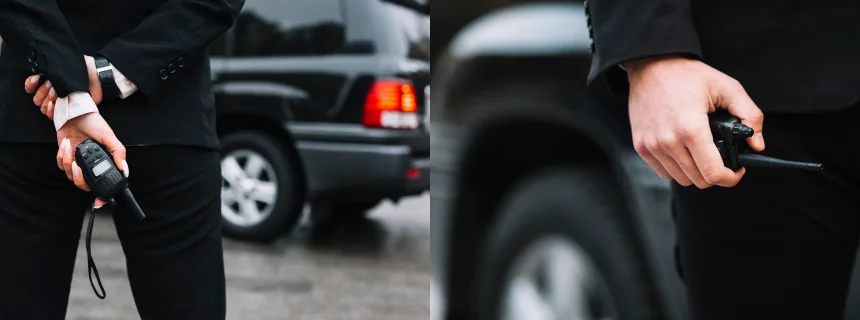
Role and Primary Focus
Bodyguards also have the role of threat detection and logistics. Trained in unarmed and armed combat, surveillance, and emergency response, they protect clients from possible attacks, attempts of kidnapping and unwelcoming places. They are there and they make a strong impression.
Close protection chauffeurs, however, combine driving skills with security. They are also trained in risk assessment and defensive driving, but their primary role is to move people safely from one place to another. By driving safely with chauffeur-driven vehicles, they decrease road risks -carjackings, hijackings, traffic-related dangers— and ensure a seamless travel between appointments.
Skills and Training
Etiquette, routing, and client comfort are three key areas that a professional chauffeur service focuses on. Close protection drivers take this one step further, receiving specific training in surveillance, defensive driving, and first-aid. They are taught to look for suspicious activity around pick-up points, how to use counter-surveillance tactics and even high-speed driving techniques if necessary. If a bodyguard has a wider range of physical-combat instruction, a chauffeur focuses more on vehicle defence.
Visibility and Client Perception
Bodyguards tend to wear some combination of tactical or clandestine armour, so it’s clear to see they’re there to protect. This exposure can also serve as a deterrent, but also attract negative attention.
Your close protection chauffeur will be of a low profile. They wear smart business attire and arrive in glossy chauffeur-driven cars, looking at home in high-end concierge surroundings. It's that their quiet appearance fits with that of a corporation's branding and that it spares clients all of the overbearingness of plain sight security-- perfect for the executive, celebrity, or diplomat that places high value in subtle protection.
Scope of Services
A bodyguard’s work is not limited to transport: venue sweeps, crowd control, and secure escort on foot. They can synchronise with local police, organise safe rooms and security teams; they are able, in short, to serve and protect.
Close protection chauffeurs concentrate on securing travel, with the choice and upkeep of vehicles, verification of routes, and liaising with authorities to ensure unhindered passage through roadblocks to reach destinations securely. They frequently work in partnership with bodyguards in situations that require multilayered security.
Cost and Logistics
Bodyguards offer a broader range of security services and usually operate in teams, which is why their services are generally more costly. They need a lot of equipment, firearms certification, plus there could be legal and insurance costs.
Close protection chauffeurs provide a value option for clients who simply require secure driving. Their embedding within the professional “chauffeur service” concept simplifies logistics - vehicle acquisition, licensing issues and schedule - and decreases total cost while providing a tailor-made protection.
When to Choose Which Service
- Opt for Bodyguards you expect significant threat environments, to make a public appearance in a large crowd, and if you just need to get guard and venue security service on foot.
- Opt for Close Protection Chauffeurs if getting safely from A to B is your major concern, and you would like an unassuming vehicle-based security service combined with comfortable and luxurious travel.
Conclusion
Though both bodyguards and close protection chauffeurs are commonly concerned with client safety, their methods differ: the former is concerned with minimising potential harm under a range of conditions, while the latter focuses on safe, chauffeur-driven transportation. Clients can choose the right security system by understanding threat levels, visibility, and budget.
For professional close protection chauffeurs only HCD Chauffeur Services guarantees the highest level of security, professionalism and discretion on every assignment.
Latest Blogs
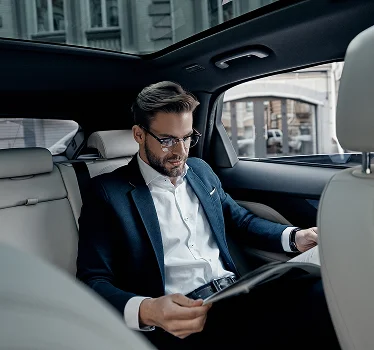
Corporate Chauffeur Solutions for Financial Institutions
Nov 04, 2025 | 9.00 pm
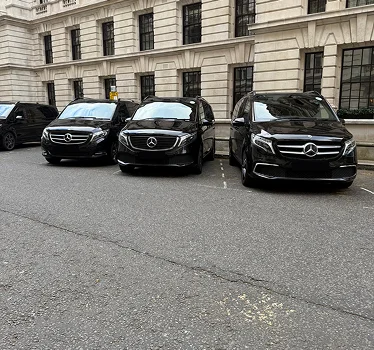
Top Luxury Cars Used in Premium Chauffeur Services
Oct 28, 2025 | 5.45 pm
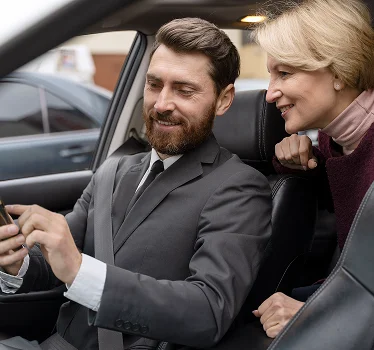
The Benefits of Subscription-Based Chauffeur Memberships
Oct 16, 2025 | 3.00 pm
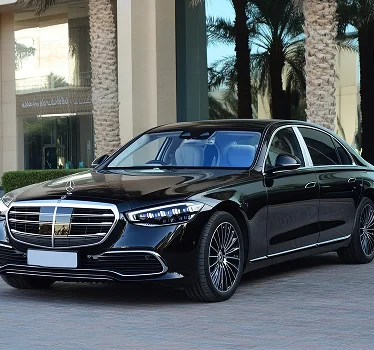
Why Mercedes E-Class Is a Smart Choice for Chauffeur Service
Oct 10, 2025 | 7.00 pm

How the Mercedes E-Class Balances Luxury and Affordability
Oct 03, 2025 | 3.00 pm
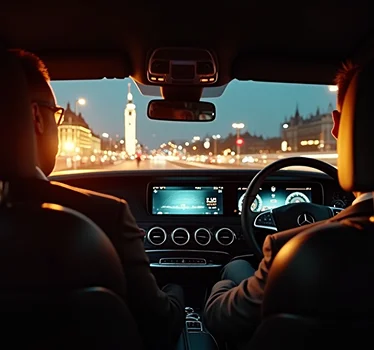
Late-Night Travel? Stay Safe with a Chauffeur
Sep 25, 2025 | 11.30 pm

Top 5 Mistakes to Avoid When Booking a Chauffeur in London
Sep 19, 2025 | 12.00 pm
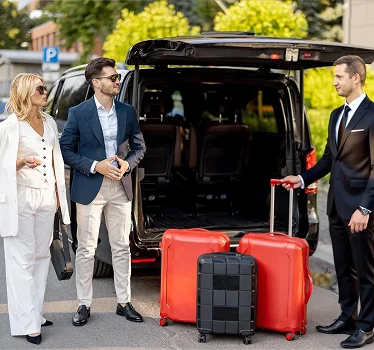
The Best Chauffeur-Guided Tours for Couples on Vacation
Sep 12, 2025 | 3.00 pm
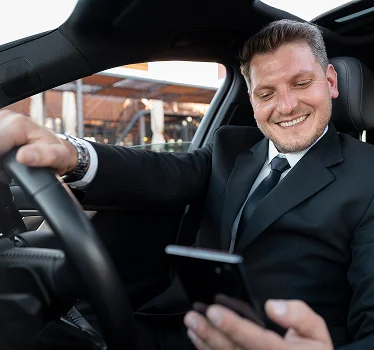
How Much Chauffeurs Earn in the UK
Sep 05, 2025 | 8.00 pm
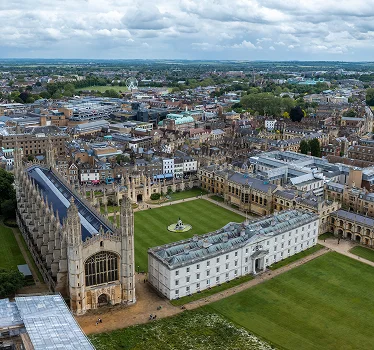
Explore Scenic Trips from London with Chauffeur Services
Aug 29, 2025 | 6.30 pm
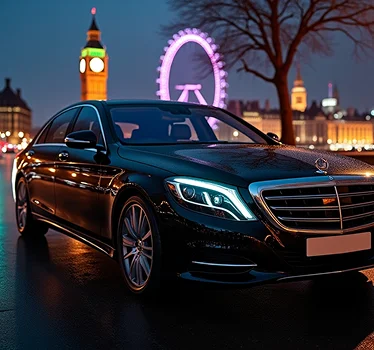
Enjoy London Nightlife Stress-Free with a Chauffeur
Aug 22, 2025 | 6.00 pm






